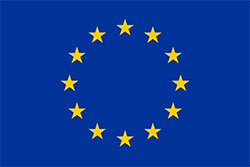The decision of the U.S. Supreme Court¹ overturning the landmark Roe v. Wade ruling has had multiple consequences in the United States.
The main one is that a large number of American states have restricted access to abortion within their territory. Denying the fact that the U.S. Constitution confers on women the right to abortion, the Supreme Court ruling has returned to each of the states the competence to regulate this practice. The result has been that only 10 of the 50 states that make up the United States have maintained free access to abortion without any type of restriction.² This pro-life legislative change has led certain U.S. companies to endorse their support for abortion and extend their Employee Benefit Plan so that the companies themselves assume the travel and lodging expenses of workers who want to have an abortion and cannot do so in their state of residence for legal reasons.
Altum Faithful Investing has approached companies to get first-hand information about this new corporate policy to try to understand what has led large corporations to oppose the Supreme Court ruling and on what grounds they have based their decision to assume abortion-related travel expenses.
The result of this consultation has been surprising:
- 68% of the companies we contacted (all of them with large Investor Relations departments) did not want to provide us with the requested information.
- Among the 32% that did respond, companies such as Accenture, Nordstrom or H&M have confirmed that they will cover access to abortion when their employees cannot access it within a radius of 80 to 150 km, depending on the company. Others have shared with us their policy and in some cases limit the amount they will pay their employees to cover these expenses. The highest amount that Altum has been informed of is USD 7,500.

Faced with the decision to assume these costs and the subsequent refusal to provide the public with clear information about them, the investor may wonder:
- Why do companies that officially publicize their decision to cover the cost of travel for abortions in turn pay large amounts of money for violating the rights of those same workers? Is there a real concern for the welfare of society and workers? It is paradoxical that the financial services company Wells Fargo, for example, paid in 2021 more than 400,000,000 dollars in fines related to money laundering, employment discrimination or violation of privacy, among others.
- Is it good for companies to take positions on issues that are outside their business and that have important political connotations and, in cases such as abortion, strong moral implications?
- Can investors demand of these companies that choose to take ideological positions that, in the same way that they annually publish details of their sustainability policies (carbon emissions, energy savings…), they be equally transparent in providing details on their involvement in issues such as abortion, gender ideology or respect for religious freedom?
It is clear that there is a trend, with several decades of experience, that has led many companies to take a position on issues on which they did not speak out before. In the past, ideological issues were left out of the business and companies focused on developing their activity as best as possible while fulfilling their economic and social role. Today, however, things have changed and it seems more opportune than ever to recall what John Paul II taught in Evangelium Vitae: “A society cannot have a solid foundation if, while affirming values such as the dignity of the person, justice and peace, it radically contradicts itself by accepting or tolerating the most diverse forms of contempt for and violation of human life, especially if it is weak and marginalized. Only respect for life can be the foundation and guarantee of the most precious and necessary goods of society”³ .
1 Dobbs v. Jackson Women’s Health Organization, No. 19-1392, 597 U.S. (2022
2 https://reproductiverights.org/maps/abortion-laws-by-state/ & https://www.nytimes.com/interactive/2022/us/abortion-laws-roe-v-wade.htmlhttps://www.nytimes.com/interactive/2022/us/abortion-laws-roe-v-wade.htmlhttps://www.nytimes.com/interactive/2022/us/abortion-laws-roe-v-wade.html
3 John Paul II, Encyclical Letter Evangelium Vitae, 1995. Accessed at: https://www.vatican.va/content/john-paul-ii/es/encyclicals/documents/hf_jp-ii_enc_25031995_evangelium-vitae.html








